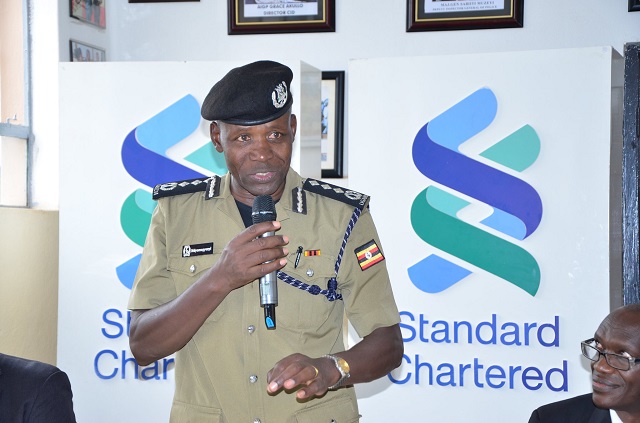
Kampala, Uganda | THE INDEPENDENT | At least 53 top criminal investigations commanders are attending a refresher course on investigating money laundering.
The course that was officially opened by police’s deputy director for human resource development, Senior Commissioner Felix Ndyomugyenyi on Thursday will enable senior CID commanders acquire skills on investigating money laundering in both physical and digital transactions.
Money laundering refers to disguising money accrued through unscrupulous ways such as corruption appear genuine. With money laundering, stolen money is disguised by investing in real estate or purchasing of vehicles.
Ndyomugyenyi said the course comes at the time when money laundering cases are on the rise. Nevertheless, he did not cite figures or examples to support his assertion. There was slight decrease in economic crimes in 2018 whereby police registered a total of 15,099 cases compared to 16,031 cases in 2017.
CID commanders have also been cautioned against falling victim of bribes offered by rackets involved in money laundering. Ndyomugyenyi said police leadership won’t exonerate any CID commander involved in receiving bribes from money launders.
Ndyomugyenyi said it would be absurd for a CID boss who has been taking lead in investigating corruption cases to face the same offences. Detectives were reminded to always protect their integrity and that of the police force.
The Inspector General of Police – IGP Martin Ochola in a message also delivered by Ndyomugyenyi said CID officers should ensure rewards of corruption and crime are fought vehemently because they damage the veracity of society.
“Money laundering causes serious social and political costs when organised crime gets involved in it by infiltration of financial institutions, acquisition of large sectors of the economy and bribery of public officials,” said Ochola.
Ochola cautioned CID bosses to acquire enough skills whenever experts in economic crimes investigations share. Detectives have been urged to understand that all financial crimes have components of money laundering since nearly all money stolen or embezzled ends up being laundered into activities.
“The trail of stolen of money must be followed as to include newly acquired properties such as land, houses, vehicles and other properties. The bank accounts of spouses, children and relatives must be investigated too,” he added.
Among the senior detectives attending the course include Assistant Commissioner of Police –ACP Francis Okello, Superintended of P Cissy Kiriya, SP Christopher Kinene-East KMP and ASP Charles Twine.
******
URN
 The Independent Uganda: You get the Truth we Pay the Price
The Independent Uganda: You get the Truth we Pay the Price





